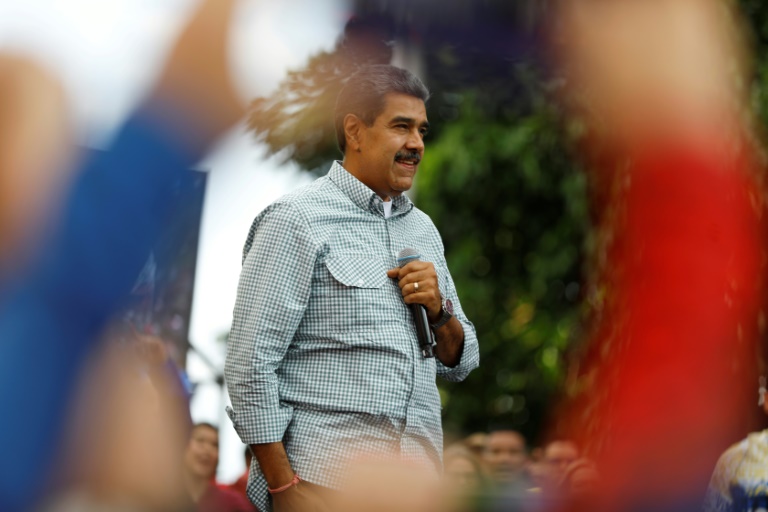Opposition leader Maria Corina Machado vowed to remain in Venezuela on Monday, a day after her colleague and presidential candidate Edmundo Gonzalez Urrutia sought asylum in Spain over post-election repression.
“I have decided to stay in Venezuela and participate in the fight from here, while he (Gonzalez Urrutia) does it from abroad,” Machado, who is in hiding, told reporters via video conference.
Gonzalez Urrutia, 75, arrived in Madrid late on Sunday after spending weeks in hiding following the July 28 presidential election, which the opposition claims he won, but incumbent President Nicolas Maduro has claimed.
“We all know that Edmundo Gonzalez Urrutia is the elected president of Venezuela… whether he is in Venezuela or anywhere else in the world,” Machado said.
The fact that he is now abroad “does not change anything: the legitimacy remains, the strategy is the same,” she stressed.
After arriving in Spain, Gonzalez Urrutia said he had decided to leave “so that things could change and we could build a new stage for Venezuela.”
Machado had said he left the country because “his life was in danger”
“Only a policy of dialogue will allow us to reunite as compatriots,” Gonzalez Urrutia wrote in a letter to Venezuelans posted on the social network X.
“I have made this decision with Venezuela in mind and with the understanding that our destiny as a country cannot and should not consist of a conflict full of pain and suffering.”
Gonzalez Urrutia had replaced Machado on the electoral list at the last minute, after she was blocked by institutions loyal to Maduro. She was accused by observers of human rights violations.
Venezuela’s regime-loyal electoral council, the CNE, declared Maduro the winner of the election, but the opposition has fiercely criticized it and much of the international community has refused to accept the results.
– Risk of prison sentence –
Authorities have issued an arrest warrant for Gonzalez Urrutia, who Maduro says should be behind bars, just like Machado.
She remains in hiding, except that she has led a number of protests against Maduro since the controversial vote.
Gonzalez Urrutia left Venezuela after ignoring three consecutive summonses to appear before the prosecutor, arguing that doing so endangered his freedom.
Prosecutors had opened an investigation against Gonzalez Urrutia for crimes related to his claim that he was the rightful winner of the election.
The charges include usurpation of public office, falsification of public documents, incitement to disobedience, sabotage and collaboration with organized crime.
He faces a prison sentence of 30 years.
The charges stem from the opposition’s decision to publish its own tally of ballots cast at polling stations, which allegedly showed Gonzalez Urrutia winning about two-thirds of the vote.
Venezuela’s electoral authority has said it cannot provide a detailed overview of the election results, saying it was a cyberattack on its systems.
According to observers, there is no evidence of such hacking.
Post-election violence in Venezuela has left 27 people dead and 192 injured, with the government saying some 2,400 people have been arrested.
The prosecutor’s office at the International Criminal Court in The Hague said it was closely monitoring “current developments” in Venezuela, in addition to an ongoing investigation into crimes against humanity allegedly committed by government forces during opposition protests in 2017 that left more than 100 people dead.
The office said in a statement that it also “analyzes information transmitted to the office regarding allegations of crimes that may fall within the Court’s jurisdiction.”
The Office stressed the “importance of ensuring compliance with the rule of law… and emphasised that all persons must be protected from violations that may constitute a crime under the Rome Statute.”
After Venezuela’s last elections in 2018, Maduro also claimed victory, despite widespread allegations of fraud.
With the support of the military and other institutions, he managed to remain in power despite international sanctions.
Since Maduro came to power in 2013, GDP has fallen by 80 percent in a decade, causing more than seven million of the country’s 30 million citizens to migrate.
jt/mlr/fb/dw







